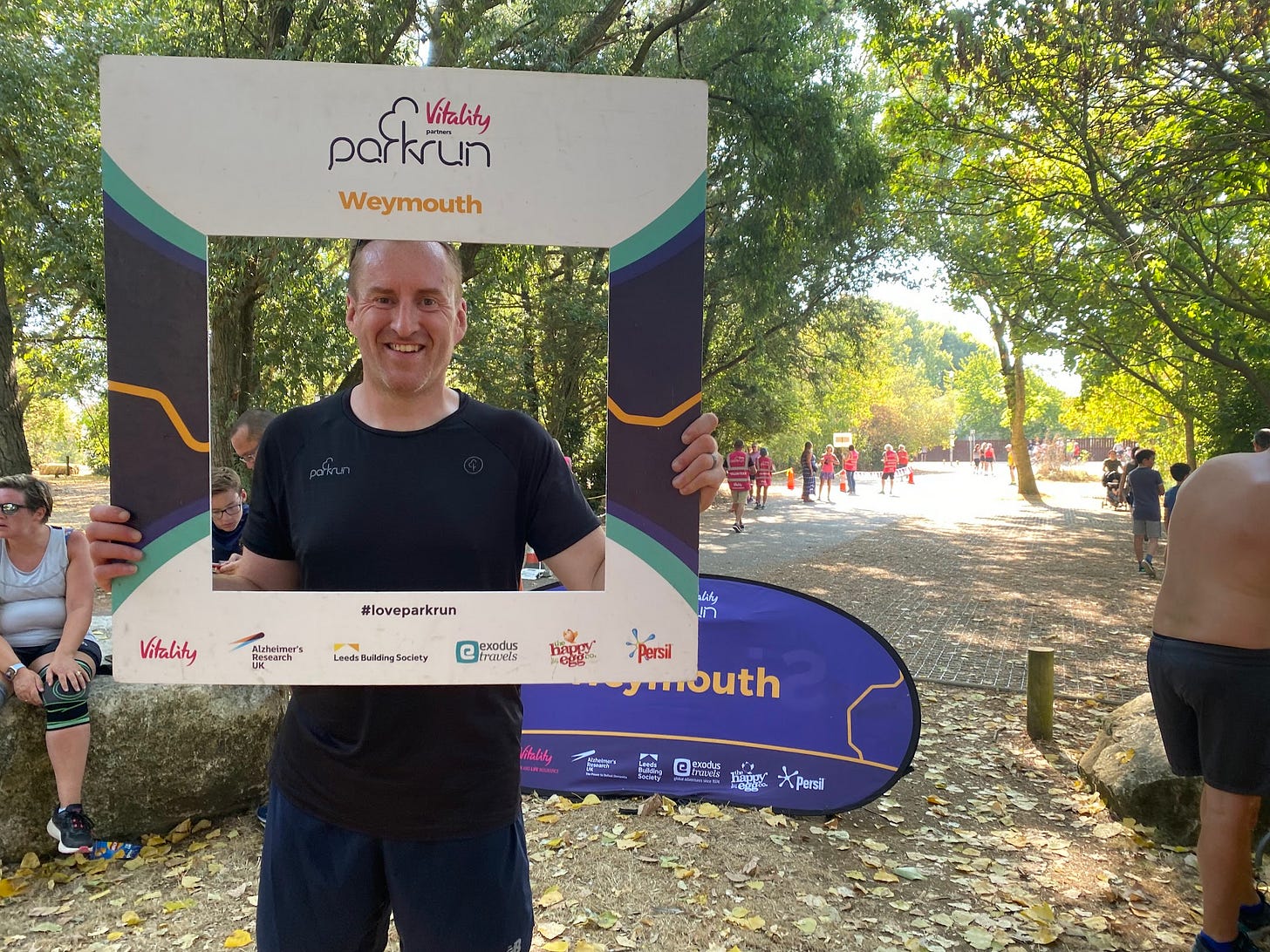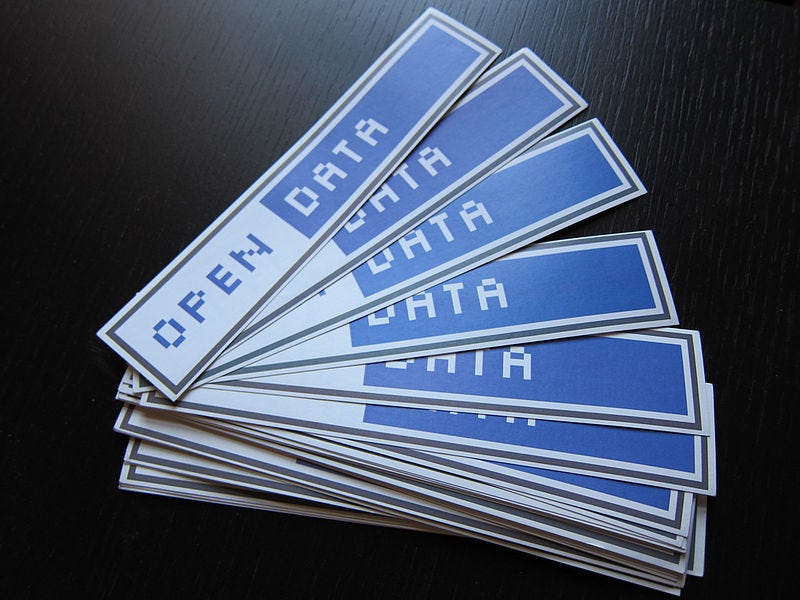The first casualty of parkrun is Data
parkrun has been a force for fitness good since its inception in 2004. This week, it removed a range of public data from its website, claiming a disconnect between performance and inclusion.
I did my first parkrun in 2010. In total, I’ve now done 278 parkruns at 50 unique venues. My fastest time is 20:52 (A while ago now!) which I recorded at two separate places. In recent times, my Age Grading is hovering around 54%.
I know all of this due to one of the great things about parkrun: The data it shares that allows participants to track their involvement over time, and (if they want to) compare themselves with others.
parkrun has approximately 1,500 events worldwide. Each Saturday, free of charge, the public can walk, jog, run, volunteer or spectate the 5k event. There is also a junior parkrun, at a shorter 2k distance, for 4-14 year olds and their families, every Sunday morning.
The ethos is one of inclusion. No-one finishes last (As there is a nominated volunteer ‘tailwalker’). In recent months, ‘parkwalkers’ have been introduced to help to encourage those that want to walk the course. Buggies of all shapes and sizes are a regular feature. I’m still, just about, pushing round my 4 year-old at some level of speed… although her own junior parkrun career is picking up now!
Although parkrun is not officially a race, you could finish first. parkrun attracts a diverse crowd. Some athletes will want to try and get that number one spot. They might want to get the course record. A group of parkrun tourists enjoy visiting as many different events as possible, and there’s a whole suite of unofficial challenges based around this - such as Compass Club (Run a parkrun named after each of the compass points - quirky!). Naturally, there’s an app for that.
This week, in a contrast to its previous Open Data position, parkrun announced the removal of a swathe of data from its website:
Based on the conclusions and recommendations of the project group, we will no longer publish data such as most first finishes, sub 17 men and sub 20 women, and age grade or category speed records. Alongside these, as part of our ongoing data protection improvements, the search function has been removed.
This is a disappointing move. I can understand that parkrun has been put into a very difficult position recently with a lot of negative campaigning and press. That can be summed up by this Telegraph article: Parkrun removes all records in transgender row despite ‘sex discrimination’ claims. parkrun allows participants to self-declare gender (Male, Female or ‘prefer not to say’) - equally, any name can be specified without checks, and I’m aware of one case where a family had registered their dog to rack up parkruns. All of this can impact upon the perceived validity of some of the records. But so could someone lending their registration bar code to someone else to run an event on their behalf. The honour system applies!
The removal of data is not the solution. It doesn’t solve the core issue and I am not convinced that its existence was off-putting to those considering parkrun for the first time. I am open minded here, but this relies on parkrun actually publishing the thought process and recommendations of their project group fully. They should do this to evidence that they are not rushing into a tactical response to the furore on social media.
parkrun is many things to many people. Some will not care for the removal of the data at all, especially since individual results are not impacted (“Your personalised results email and your individual profile pages will remain unchanged”). In fact, many participate without thinking about their result or trends at all: That’s the beauty of the inclusion of the event. But some do! (The parkrun Tourist group is being notably vocal here - Typical quote: “Darned useless and wooley (sic) minded snowflakes take over the world again.”)
parkrun needs to continue to set an example in both inclusion and the power and beauty of making data available to all. A whole eco-system of apps and browser plug-ins has formed around what parkrun has started. Sub-cultures such as the parkrun tourists have formed around finding emergent challenges in the data. All of this in itself is a form of inclusion!
I hope parkrun finds a way to navigate its way through this current storm. The safe harbour it chooses needs to preserve the public’s access to Open Data.





For me whilst not a perfect solution it sends the right message. I have two friends, both trans girls, one a long term runner, the other quite new to it. The the long term runner, long after transitioning, started getting targeted by anti-trans activists based on her presence in 5k and 10k results (despite her never even being close to a best-in-age category), under the banner of "it's a competitive event and your biology gives you an unfair advantage", so after a quite nasty campaign, she gave in and sort refuge in the much more inclusive community that parkruns offer.
And she was really happy here and over time, her friend joined her. Parkrun being "not a race" meant she could participate without fear of retribution.
Until around 18 months ago the anti-trans movement started pressuring parkrun to force people to run under the gender they were assigned at birth and despite them both already running under assumed names (because of what had happened based on the 10k results) the abuse started again (this time at both girls).
All the wanted to do was partake in a mass-participation events, neither is close to "winning" (if there is such a thing in a "not a race" event).
So, by Parkrun doing what they've done, whilst not ideal, HAS forced the anti-trans activists into a corner and protected their participants. NOW anti-trans activists can no longer hide behind the "it's unfair in a competitive environment" rhetoric and either admit that it was never about competitive advantage and everything about persecuting trans girls, or they can STFU and go find another area to attempt to remove them from and leave parkrun the wonderful and inclusive place it's always been.